Pontypool: Struggles and opportunity in a valleys town
- Published
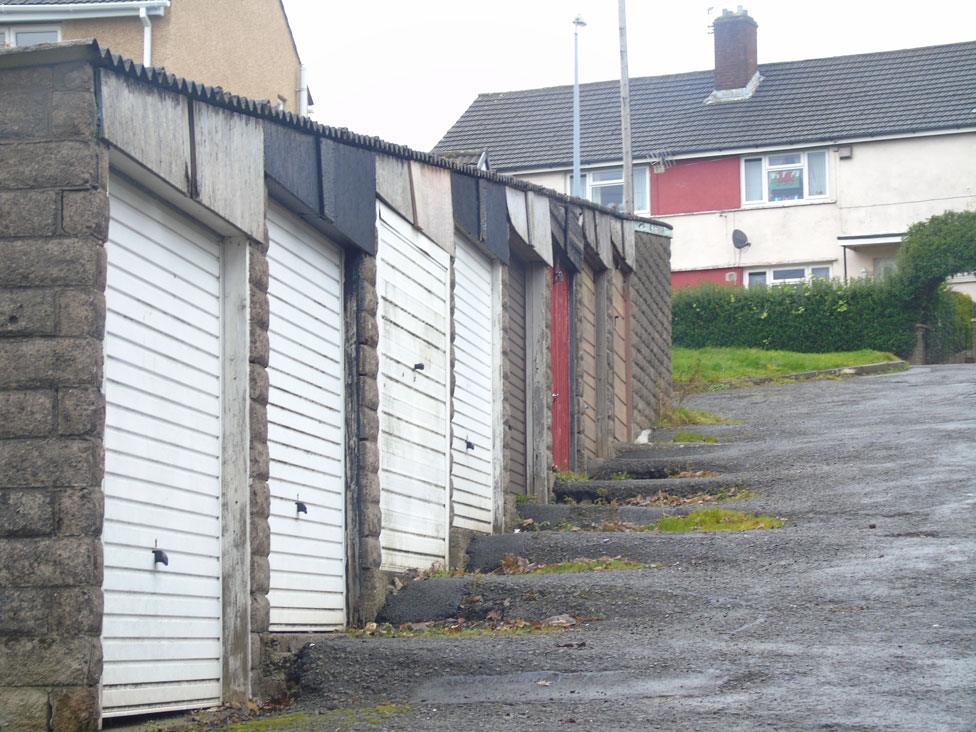
The heart of the Trevethin estate in Pontypool
Sometimes living in Wales it is too easy to look around and conclude there are simply "rich" areas and "poor" areas.
Public policy researcher Dr Mark Lang said his study in Pontypool, Torfaen, showed real diversity within a single town.
What this type of "deep place" research does is look in fine detail at different neighbourhoods and avoid generalisations with both stereotypes and statistics.
He believes looking at economic data on too-wide a scale can miss entrenched pockets of poverty within communities, which on the face of it look to be doing well.
"Pontypool is a real mixture of people clearly with little money and people who are relatively affluent, living in close proximity," he said.
"Many of those who don't have a great deal of resources use the town centre while those who do have, tend by and large not to come here. As a focus of community attention, I think that's a shame."
Dr Lang, who has published similar work about Tredegar, external, is hoping the approach can help create jobs and revitalise town centres.
Pontypool is a town with a population of about 23,400, six miles south of the Blaenavon world heritage site.
Its iron forging dates back to Tudor times and the "Pontypool front row" were Wales rugby stars the 1970s.
Nearly 3,700 people live on the Trevethin estate, over the Afon Lwyd river, which stands on a hill overlooking the town centre, a mile away.
More than half of those are in a part of the estate - classified as "Trevethin 1" - which all figures point to as being the poorest area.
It also has the densest population and the largest proportion (28.3%) of under-15s.
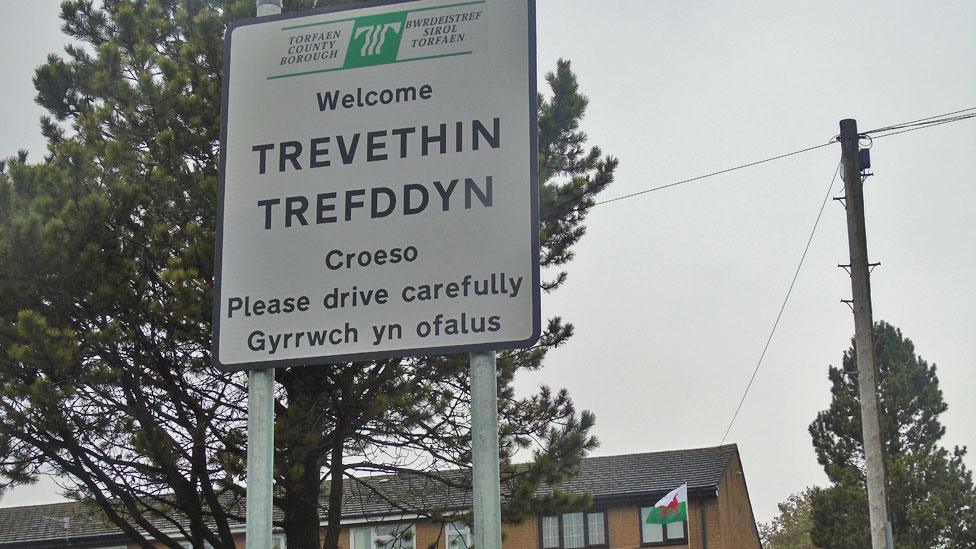
POCKETS OF POVERTY
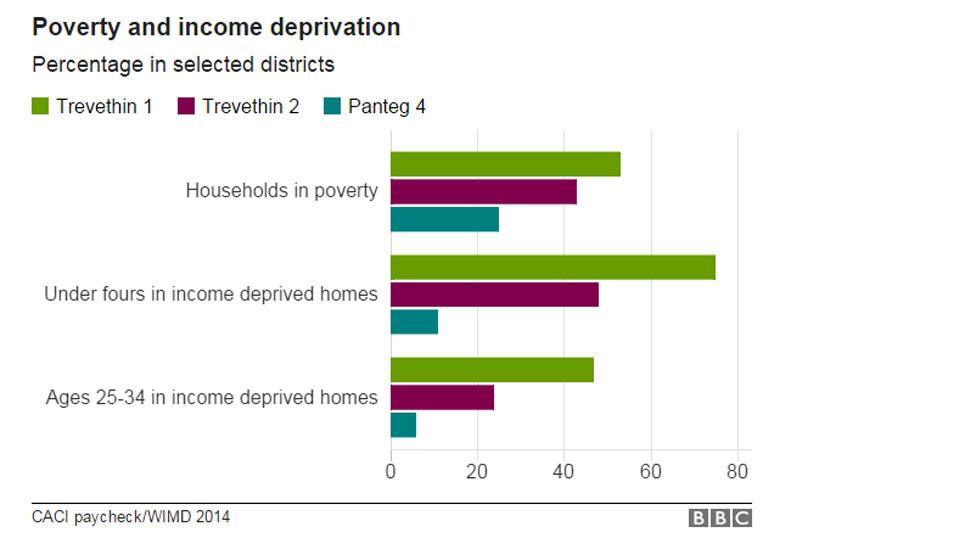
75% of children under four living in the centre of Trevethin live in low-income households - this compares with only 11% in a more prosperous part of nearby Panteg
13% of people in the centre have never worked and class themselves as long-term unemployed
Of those working, 28% are in what are classed as "routine" occupations, only 1.4% are in professional occupations
53% of households - more than 800 - are classed as being in poverty, compared to just 25% in the relatively well off part of Panteg. All areas in Pontypool are higher than the Welsh average of 23%. In total, 3,650 households in Pontypool experience poverty
The median household income in Trevethin is £16,199 a year - nearly half the amount in the more well-off part of Panteg, £31,218
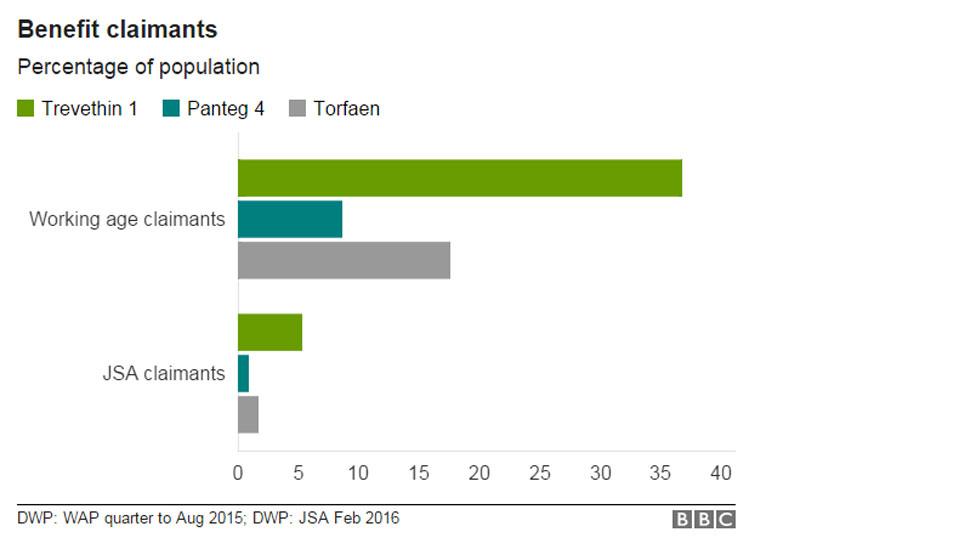
The chart above shows the proportion of working age benefit claimants in Trevethin is far higher than anywhere else in Pontypool, with 36.8% claiming, compared to 15.5% in Wales as a whole
There were 749 visits to the local food bank in 2015-16 from people from Trevethin, compared to 191 from people from Panteg
Source: All Around Us - The Pontypool Deep Place Study
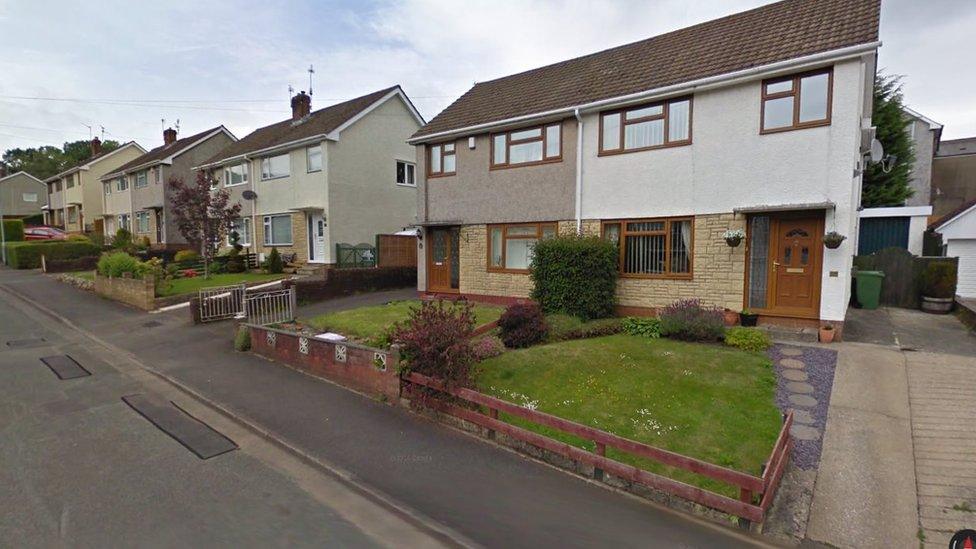
This part of Panteg has the highest incomes of 14 neighbourhoods in Pontypool but poverty levels are still above the Wales average
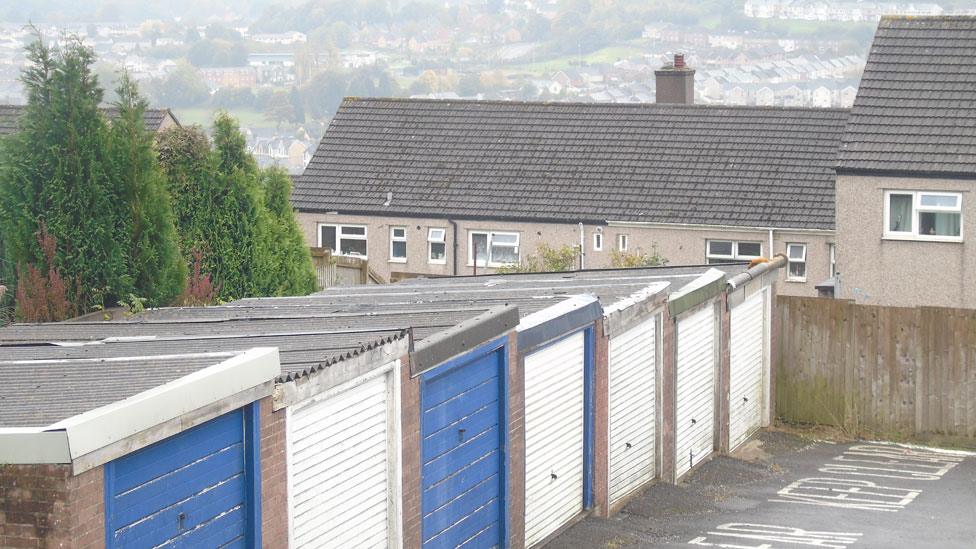
When looking at relative economic deprivation, Wales is split up into 1,900 different districts. "Trevethin 1" is classed as 35th most deprived in this often-used index.
Three other districts in Pontypool come into the top 20% most deprived in Wales. Trevethin also scores 22nd worst in Wales when it comes to health factors.
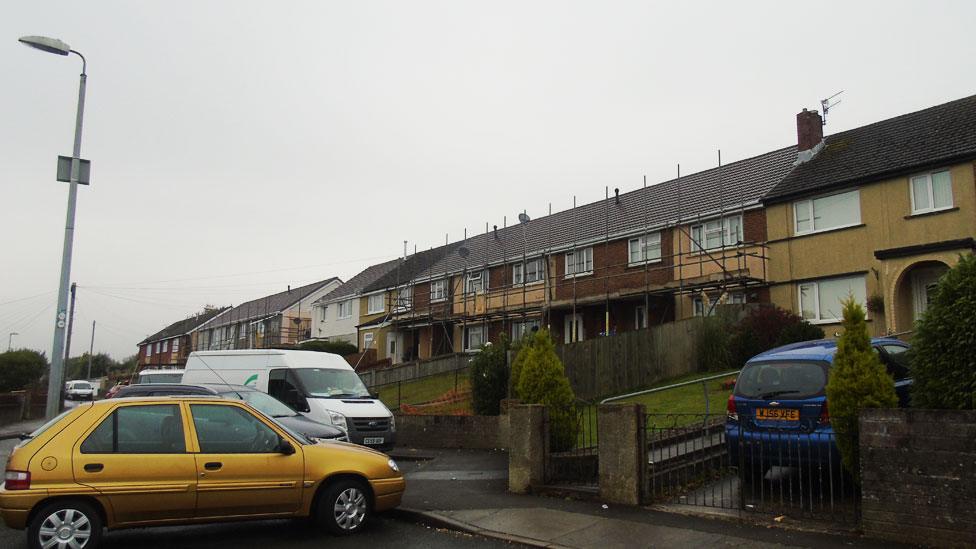
Housing improvements on Trevethin this week
A total of 60% of housing in Trevethin is rented. There is plenty of visible work going on to improve housing by Bron Afon, the social enterprise which has rented homes in place of the council for the past eight years.
Torfaen council, with £8.2m from the Welsh Government's Vibrant and Viable places programme, has earmarked money for housing improvements and regenerating town centre properties.
This report points to the link between poverty and rent arrears - and there are 5,475 homes owing money in Trevethin.
At the heart of the report is the argument that local solutions are needed to tackle these very local problems. This means "far greater empowerment" of people and local communities.

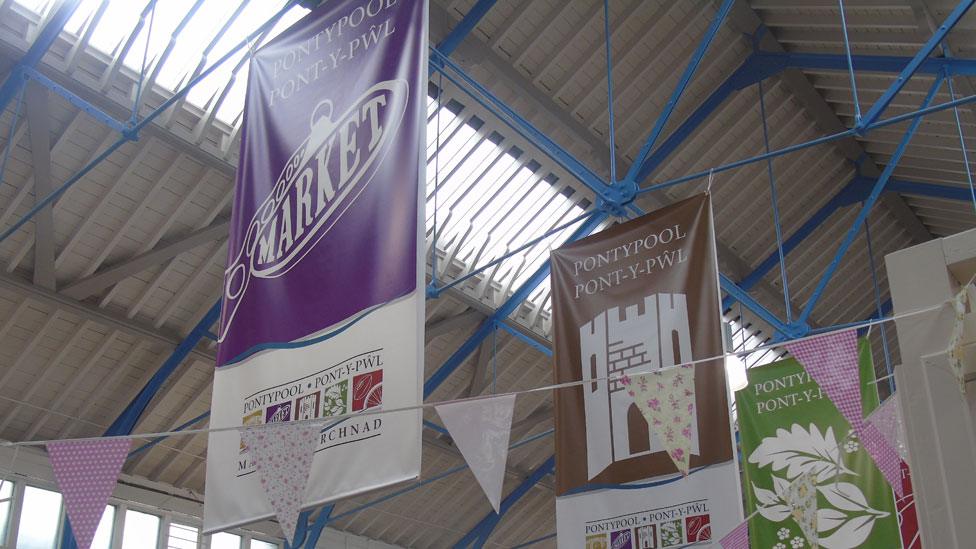
VIEWS FROM THE MARKET STALLS
A key part of the report looked at Pontypool town centre, which "needs to be designed as the heart of the community" and its future prosperity will depend on local people's continued relationship with it.
This includes a "concerted effort" to tackle crime and anti-social behaviour to make it a place to go in the evenings.
Pontypool Indoor Market dates back more than 120 years but underwent a £2.5m revamp in 2015, thanks in part to European regional funding.
As well as long-established stalls, there are new traders, cafes and a hairdressers.
But some traders want more to be done to attract people to the town centre, which faces competition from Cwmbran and Newport.
There is also unhappiness about the Tesco near the town's by-pass, meaning fewer shoppers come into the centre.
The report finds far fewer convenience shoppers in Pontypool than the average for small town centres, while footfall on a quiet day is a lot less than other towns of its size.
Steve Harris runs Saving Vinyl Music at Pontypool market
Steve Harris turned his hobby for vinyl record collecting into a business after retiring from working in the health service after 35 years.
He has run his market stall for the past 18 months dealing in classic and rare records, as well as having an online side of the business.
"You see all sorts of people; there are shops which cater for people on lower incomes and more select shops that perhaps have a bit more spending power.
"People look for bargains and they have to but there are also niche shops like mine - I can have people on a Saturday who will spend £150 on records.
"A lot of people in the town are working minimum wage or part time. People come and talk and listen to music - they don't buy anything but we offer a bit of a haven, just to chat.
"I've seen a change over the last five years - we're seeing, I guess, a slow accumulation of 30 years of slow, economic decline and the valleys themselves are very much like that. Pontypool isn't different to that extent."
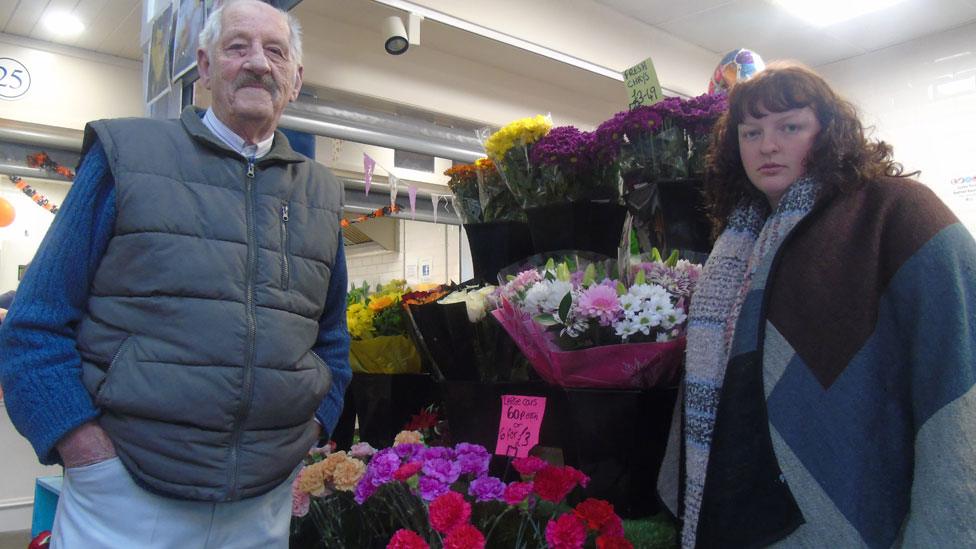
Charlie Murray and granddaughter Beth White, who runs Market Garden
Beth White, 19, is the fourth generation of her family to have a stall at the market. Her great-grandmother started with a flowers, fruit and vegetables business in 1945. Lending a hand is her grandfather Charlie Murray, 77, just a boy when he started helping and who has seen some changes.
"You couldn't see across there [the market hall] for people at one time," said Mr Murray. "You could get a suit made up, all sorts. It's very different now - there are very few types of businesses which can make money."
Miss White started running her flower stall in February.
"Funerals keep us going," she said. "I had one this morning. We've got regulars but there's not a lot of walk-in traffic. Tesco killed things. Now with Brexit [and the value of the pound] - I've got two Dutch suppliers and so it's costing an extra £1 a bunch for Chrysanthemums."
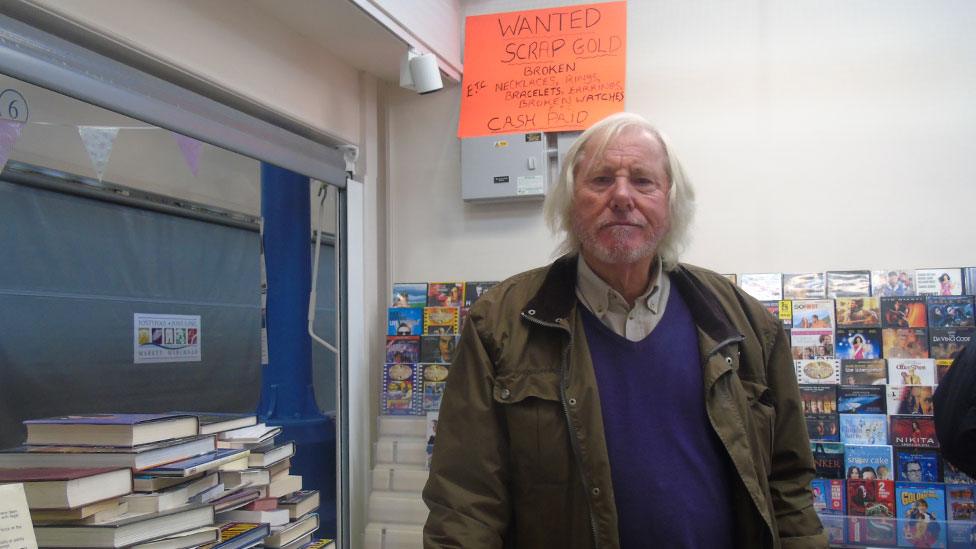
Terry Baker has been at the market for 40 years
Terry Baker's stall includes trading in DVDs and second hand books. He believes there has been no answer to bringing more traffic back into town since the by-pass was built.
"This town is marooned but people can still make a living," the 69-year-old said. "I meet a lot of people, some people come for a chat and don't spend anything but there's money about. I make enough to make a wage every week."
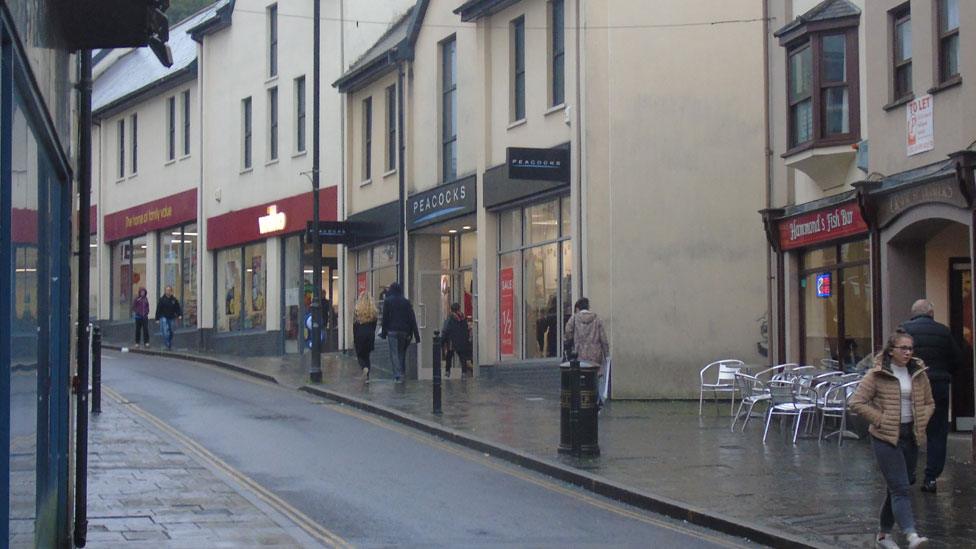
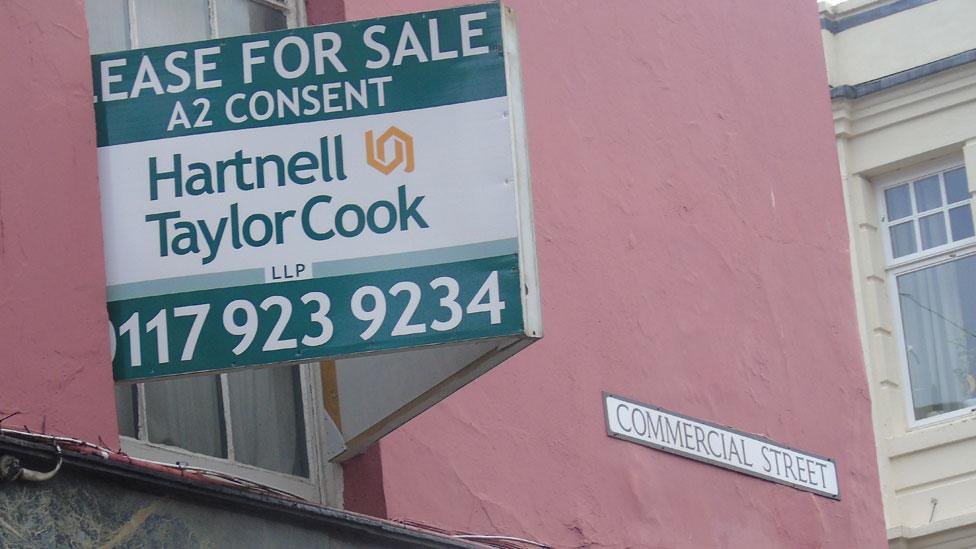
WHAT NEEDS TO HAPPEN?
Dr Lang said work needed to be done to grow confidence: "We need to send the message out that Pontypool is open for business."
He said there was potential for young, tech businesses to locate in the town centre. A third of people using the town centre at the moment do so because of work - mainly Torfaen council staff.
"It doesn't have to be a large business to be attracted here. If you look at young people and the kind of businesses they're starting up, often based online there's plenty of space and the costs of operating in Pontypool are so much lower than in a large city centre," said Dr Lang.
"It's those kind of ventures, creating economic activity, which could be so important for an area. Chicken follows egg, the economy will grow."
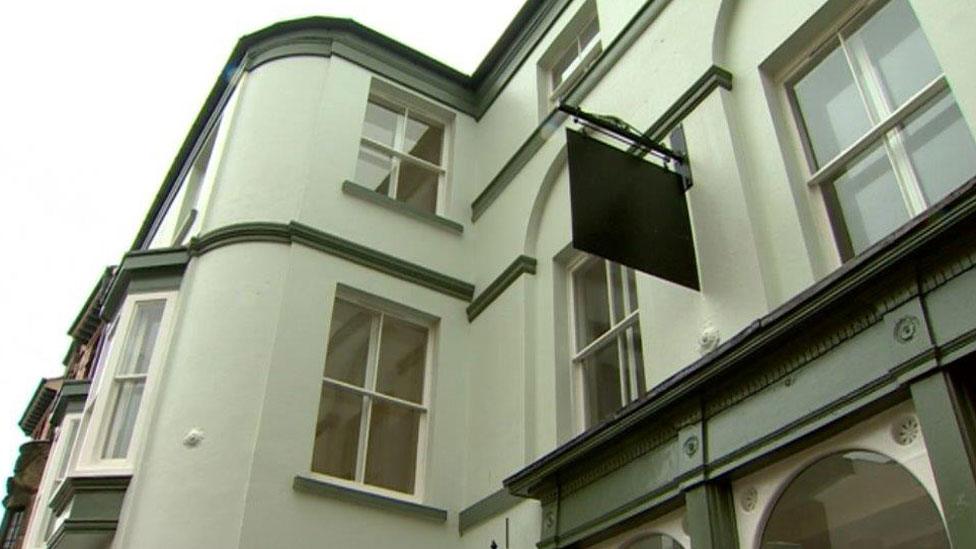
This empty pub is being transformed into a hub for small business
Mark Hooper from IndyCube is preparing to open a hub for small hi-tech businesses in a converted pub next to the market.
"It might be people who work in a back bedroom or from a coffee shop, but now they can work alongside other people in the centre of Pontypool," he said.
"We have 30 other places across Wales so we're really pleased to be here as well. People who wouldn't have worked together are sitting across from each other - and they start working with people who they like and trust.
"They don't have to go to Newport or Cardiff to work and then when they buy their bacon sandwich, they buy it from the market here."
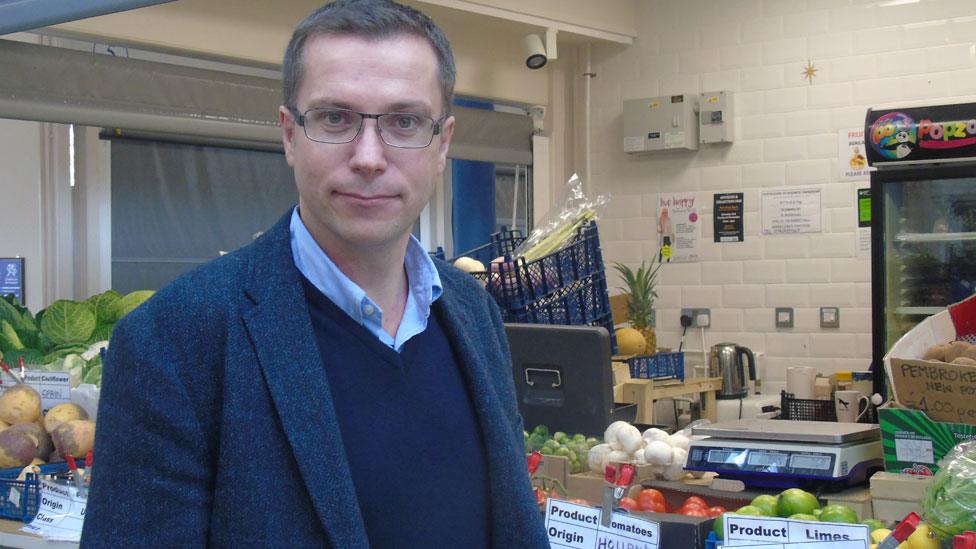
Dr Mark Lang said a 'closer, harder look' is needed to local economies
Dr Lang said there was a "big role" for local authorities in driving progress forward with the private sector and Welsh Government needed to support them and take a step back.
He said poorer communities in Pontypool were too far distant to benefit from the impact of improvements to infrastructure to commute to work in the big cities.
Dr Lang, whose work has been supported by Cardiff University's Sustainable Places Research Institute, said there needed to be a better balance between the regional and city deal approach with a "closer, harder look" at existing local economies to create local employment.
- Published27 October 2016
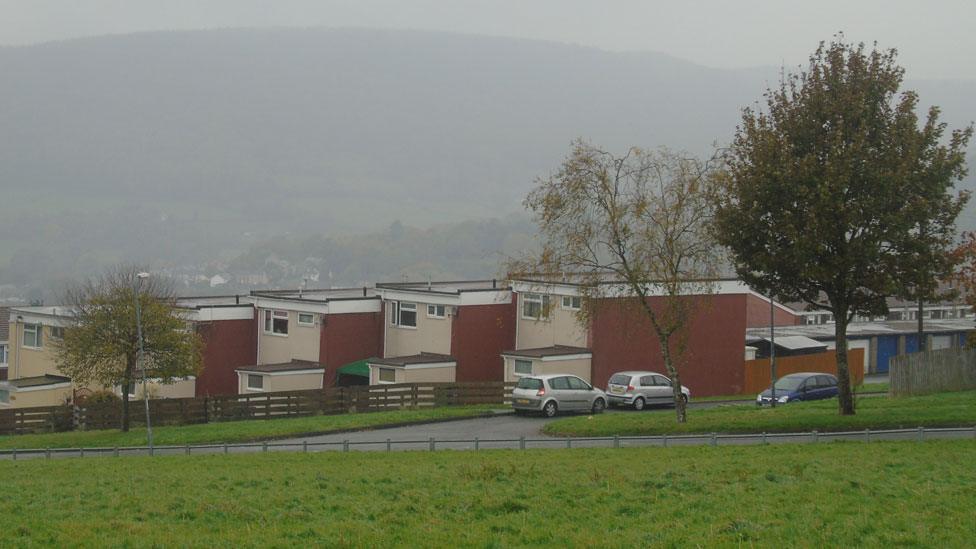
- Published5 July 2016
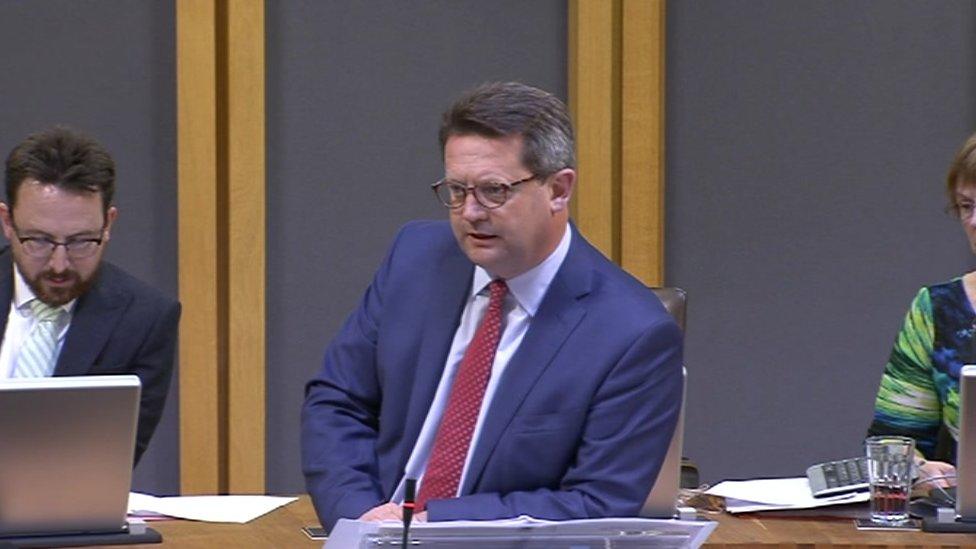
- Published18 October 2016

- Published10 March 2013
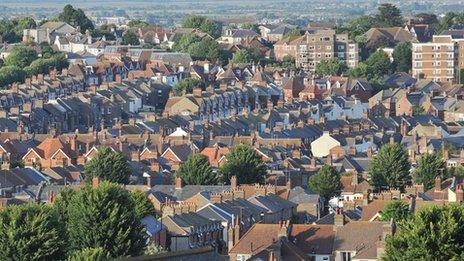
- Published8 August 2016
